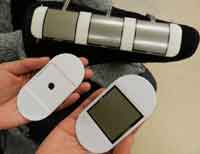A study published in the journal Acta Neuropathologica suggests head injuries that repeatedly occur during contact sports activities or military service may accelerate the aging process by increasing the build-up of beta amyloid in the brain, leading to an increased likelihood of developing dementia. Boxers in particular fared the worst, according to a release from Boston University Medical Center.
The release states that these findings are the first to establish the age-dependent deposition of beta-amyloid in chronic traumatic encephalopathy (CTE), which is a neurodegenerative disease associated with repetitive mild traumatic brain injury. CTE, the release continues, is defined pathologically by the abnormal accumulation of tau in a unique pattern that is distinct from other tauopathies, including Alzheimer’s disease. Although trauma has been suggested to increase amyloid ? peptide (A?) levels, the extent of A? deposition in CTE has not been thoroughly characterized, per the release.
To obtain their findings, the release continues, researchers studied a large group of deceased military veterans and athletes who were diagnosed with CTE during their lifetimes. They then compared those with CTE who developed clumps or deposits of beta-amyloid in their brains to a group of individuals ages 1 to 100 without a CTE diagnosis. Per the release, the researchers found that athletes and military veterans with CTE were four times more likely to develop beta-amyloid deposits in their brains and that, in general, this occurred 10 to 15 years earlier than in the normal aging group.
In addition, according to the release, among the group of deceased military veterans and athletes, researchers compared athletes who developed beta-amyloid deposits to those who did not. They found that the athletes who developed the beta-amyloid deposits had worse disease and a worse decline in their thinking ability, and were more likely to have Parkinson’s disease-like pathology and symptoms.
“This study suggests that treatment for some forms of CTE will likely require targeting beta-amyloid, suggesting that in some cases treatments being developed for Alzheimer’s disease will also be helpful in CTE,” explains corresponding author Thor Stein, MD, PhD, in the release. Stein is assistant professor of pathology and laboratory medicine at Boston University School of Medicine, associate director of the neuropathology core at the Boston University Alzheimer Disease Center, and staff neuropathologist at Boston and Bedford VA Medical Centers. “It also provides further impetus for working to prevent concussions and sub-concussive hits in contact sports.”
[Source: Boston University Medical Center, EurekAlert!]




